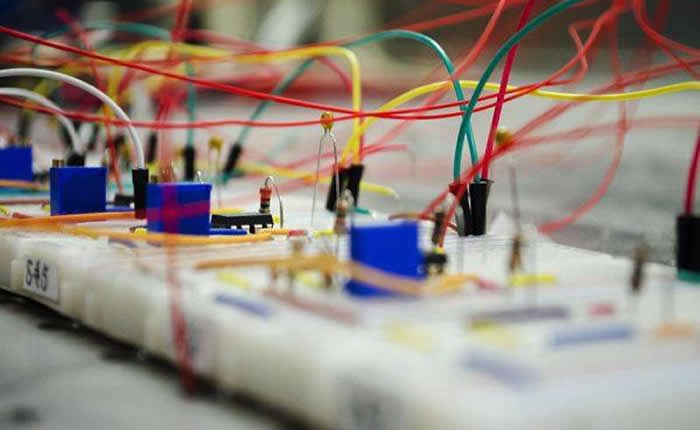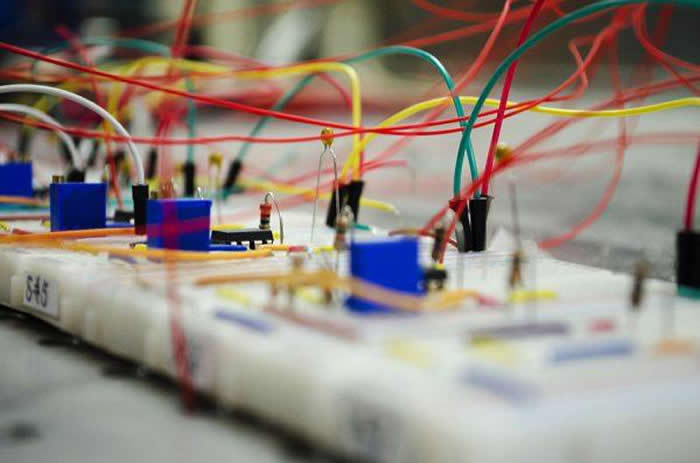Better biosensors to boost industrial applications
Measuring changes in pressure, acceleration, temperature, strain or force, piezoelectric sensors are used in a vast array of devices important to everyday life.
However, these sensors often can be limited by the ‘white noise’ they detect that can give engineers and health care workers false readings.
Now, a University of Missouri College of Engineering research team has developed methods to enhance piezoelectric sensing capabilities, which could be used to improve aviation, detect structural damage in buildings and bridges, and boost the capabilities of health monitors.
Guoliang Huang, an Associate Professor of mechanical and aerospace engineering in the MU College of Engineering, and his team’s new platform improves sensors by amplifying the signal, allowing the same amount of sensors to read more data. Their new device also cuts costs by allowing fewer sensors to cover larger structures and longer distances.
Huang said: “In the past, methods to produce signal intensification only have included electrical amplification. Our technique uses a combination of mechanical and electrical amplification, overcoming the limitations of using just electrical amplification.”
The new sensing platform can be ‘tuned’ using an electric signal, which when connected to circuit boards with sensors can pick up weaker signals that previously could not be detected.
“The amplified wave cuts through the surrounding noise,” Huang said. “It’s the first such device that illustrates how to use adaptive metamaterials to improve elastic wave sensing capabilities. This can be very useful to developing high-sensitivity sensing technology.”
More information: EurekAlert!



Comments are closed, but trackbacks and pingbacks are open.